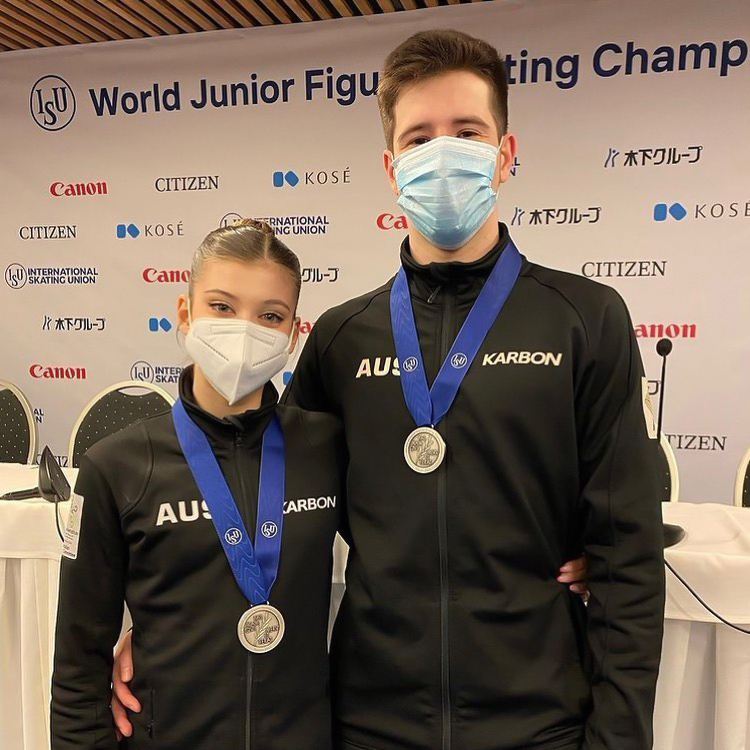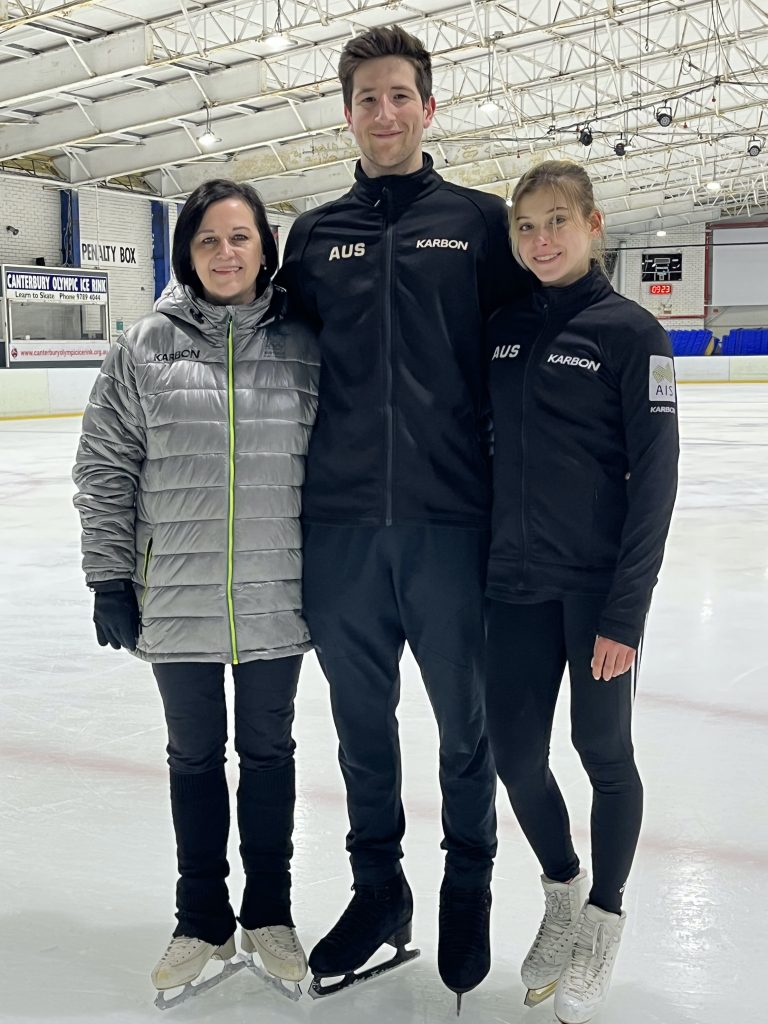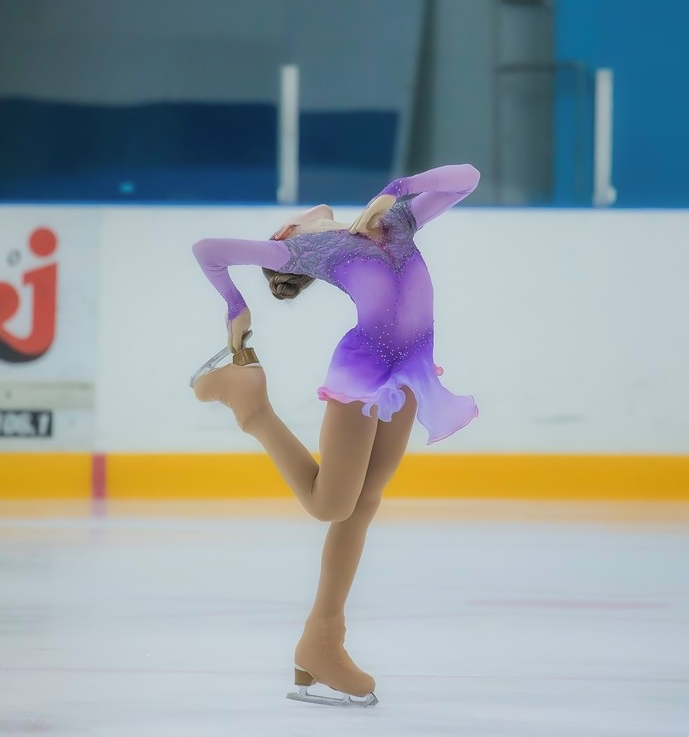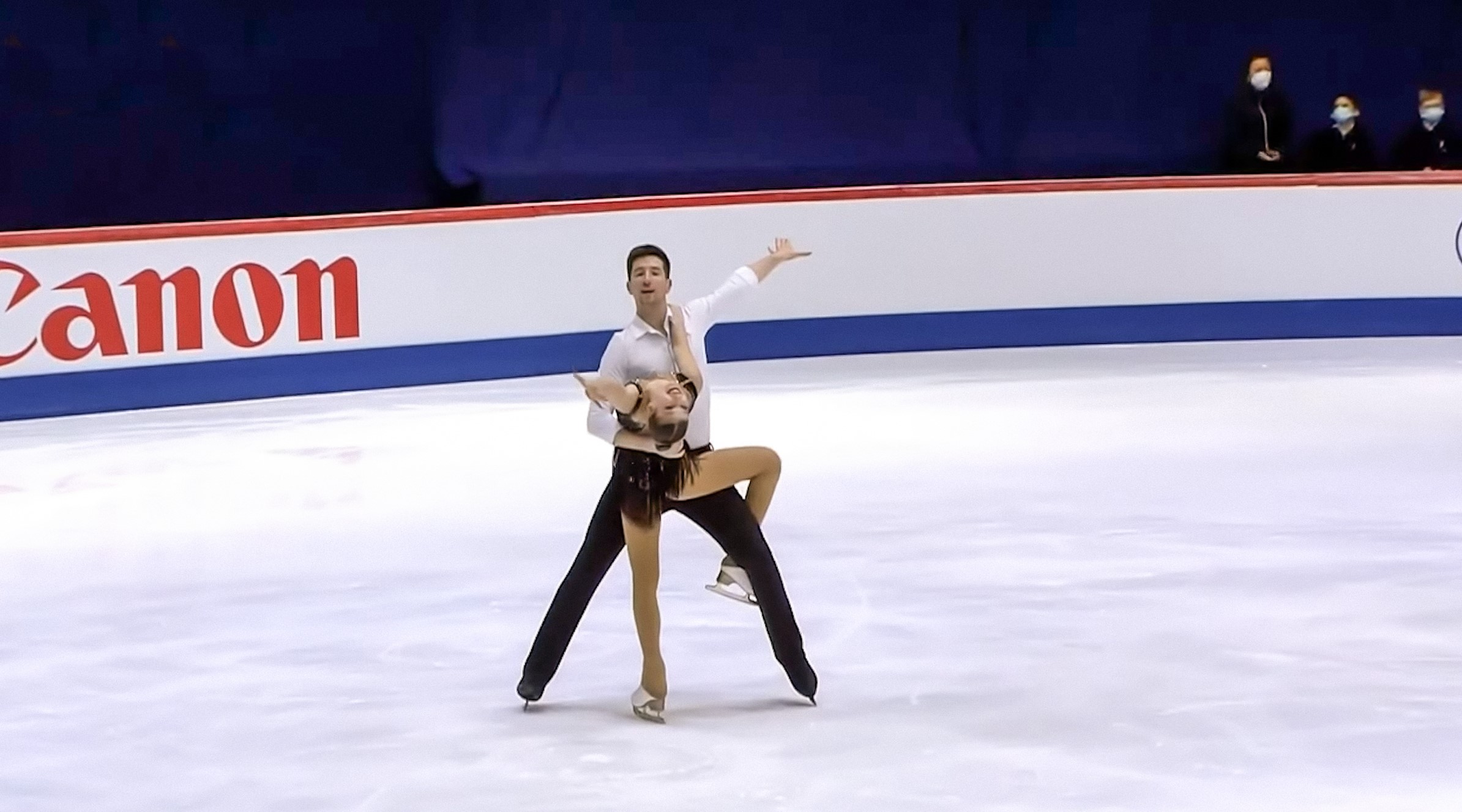Hektor Giotopoulos Moore sits before me on Zoom and begins listing countries, lifting a finger for each new one he names.
“Germany, Austria, Croatia, Belarus, Estonia,” Hektor says before raising his left hand, “oh, Australia and Russia of course,” he adds earnestly.
19-year-old Hektor has just listed all the countries he has travelled to in the last eight months with his figure skating partner, 16-year-old Moscow-born, Anastasiia Golubeva.
“It’s incredible,” he says as he recalls the multiple international figure skating competitions the pair have competed in between 2021 and 2022.
Estonia, while just another country on his list, was the country in which Hektor and Anastasiia not only secured a silver medal but made figure skating history.

History Makers
In April, the pair competed in the 2022 International Skating Union (ISU) World Junior Figure Skating Championships in Tallin, Estonia and became the third-ever Australian pairs team to medal at a World Junior Championship.
When I ask the Melbourne-born junior champ how it felt to win the silver medal in Tallinn, he describes it as nothing less than “incredible.”
“It was an incredible feeling in the moment. Very proud and happy. I was proud of Anastasiia, myself and my coaches. To be there with them and have that achievement all together was a really beautiful experience,” he says.

Anastasiia accompanied Hektor on the Zoom from his Sydney home, beaming from ear to ear and sporting a jacket embroidered with the Commonwealth Coat of Arms.
She admits winning was a whirlwind and she “didn’t really understand what was going on.”
“We had the medal ceremony of course but it wasn’t until I got back home in the evening and was on the phone to my mum that I was like ‘oh, I just came second in a world championship!’”
WATCH Hektor and Anastasiia’s Silver Medal Winning performance in the International Skating Union (ISU) World Junior Figure Skating Championships 2022 in Tallin, Estonia.
Where it all began
Anastasiia tells The Greek Herald that she first fell in love with ice skating as a one-year-old while watching her three-year-old sister skate in Moscow.
“My mum told me I had to wait. By the time I was three years old, I was like ‘no, I can’t wait anymore! I have to get on the ice and skate’,” she says.

As for Hektor, he takes me to the Greater Western Sydney city of Penrith in 2010 where he and his siblings attended a public ice skating session.
“After that, my older brother and sister wanted to try lessons so we all went and tried lessons. My older sister said ‘Nah, it’s not for me’, my brother and I skated together for a little while, but he stopped and here I am 12 years later,” he says.
By “here,” Hektor is referring to a journey that has seen him spend the better half of a decade travelling between Australia and Russia training in pair skating.
“I skated by myself for seven years and then in 2017, I went to Russia to try pair skating. I’ve been skating with Anastasiia for a year and a half now,” Hektor says.
Olympic Dreamers
Hektor and Anastasiia are only at the beginning of their four-year campaign to represent Australia in the 2026 Winter Olympics in Italy, however, at the moment they are focused on Anastasiia passing her Year Nine exams back in Moscow.
During competition seasons, the pair have 10 sessions on the ice per week – sessions that Hektor describes as physically and mentally demanding.
“You have to be extremely fit and I also have to be able to lift her above my head and throw her all around the place, so you get the physical sense of it. But it’s also very technical – you have to know what you’re doing and be able to fix a little mistake right in the moment, otherwise, you’ll end up on your back,” he says.
Whilst contending against the high-risk and physically demanding nature of the sport, Hektor says there still exists gendered presumptions that figure skating is a “wuss sport.”
“Overseas you don’t really get that, it’s more in Australia that you get people saying ‘man-up play some rugby’ but I haven’t had any real challenges with that,” the silver medallist says.
“To anyone who thinks like that I would say it try it first because it’s a hard sport.”
‘I love competition’
Upon completing her exams and given the Russian-Ukraine conflict, the pair will meet in Belarus in June to re-commence their training in preparation for the competition season beginning in August.
Whilst exams will soon be over for Anastasiia, she explains that the upcoming season is her “vibe.”
“I love competition, this is so fun for me,” she says, to which Hektor agrees “competing is a big challenge but also gives you a huge adrenaline rush – it’s a great feeling.”
With the zoom interview timing out in 60 seconds, I hurriedly ask Hektor what advice he has for anyone looking to take a similar path to him: “take risks, go out of your comfort zone – try everything and don’t hold back”.

